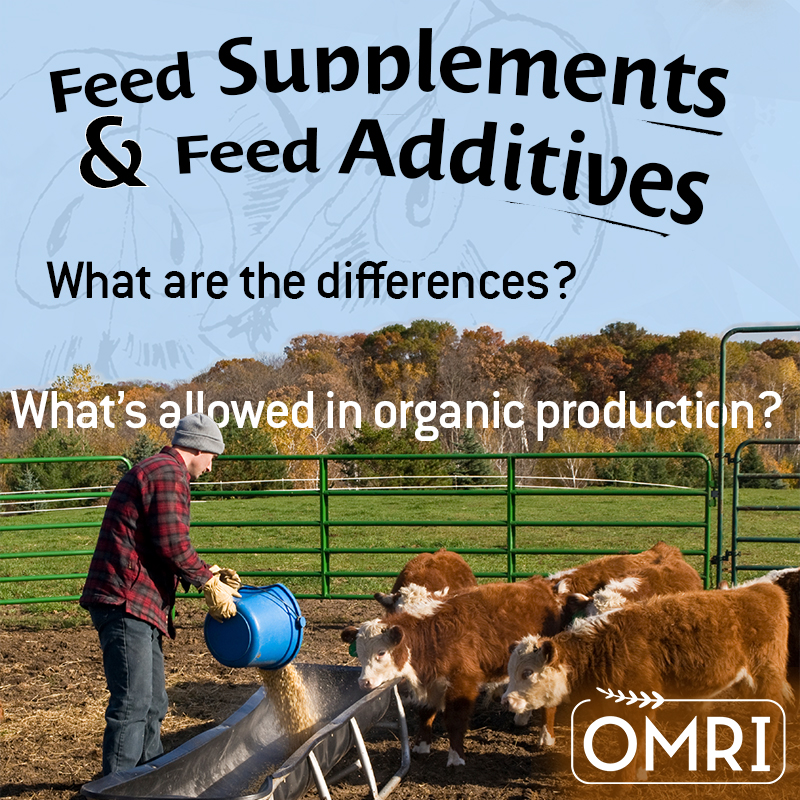Livestock Feeds
 What is the difference between a feed supplement and a feed additive? What needs to be certified organic?
What is the difference between a feed supplement and a feed additive? What needs to be certified organic?
By Jarod Rhoades
When reviewing livestock feed ingredients, it is important to first determine the intended function in livestock feed products. The USDA National Organic Program (NOP) regulations differentiate “feed supplements” from “feed additives” to determine the allowance of synthetic materials, so the first step in reviewing a feed ingredient is to discern the correct designation.
The NOP defines a feed supplement as “a combination of feed nutrients added to livestock feed to improve the nutrient balance or performance of the total ration and intended to be 1) diluted with other feeds when fed to livestock; 2) offered free choice with other parts of the ration if separately available; or 3) further diluted and mixed to produce a complete feed.” Feed supplements include such ingredients as routinely fed probiotics and digestion aids that are incorporated into the larger total feed ration. Plant-based meals may be incorporated into a feed supplement product, but OMRI typically only sees them used as carriers or diluents, as OMRI does not review complete feed rations for organically produced livestock.
A feed additive is defined as “a substance added to feed in micro quantities to fulfill a specific nutritional need; i.e., essential nutrients in the form of amino acids, vitamins, and minerals.” While synthetic materials are not currently allowed for use in feed supplements, §205.603(d) of the NOP regulations does allow for certain synthetic amino acids, vitamins and minerals that are FDA approved to be used in feed additives. In general, a restriction limits the use of these synthetics to an amount sufficient to meet adequate nutrition and health maintenance needs. Feed additives include a wide array of substances, from limestone calcium sources to a sizeable group of synthetically derived vitamin complexes.
Regardless of whether the feed ingredient is classified as an additive or a supplement, all agricultural materials “included in the ingredients list” for livestock feed must be produced and handled organically (according to §205.237(a)). The ingredient list refers to the product’s label, or, in the absence of a label, the ingredients declared to OMRI. All raw or processed plant-derived or livestock-derived substances must be certified organic if they appear on the ingredient list for a feed additive or supplement. This requirement applies to a substantial list of ingredients, including such variable substances as plant meals, seaweeds, nonsynthetic compound sugars, plant oils, molasses and vinegar, among countless others. More details about the review of feed additives and supplements are provided in NOP Guidance 5030.
This article was originally published in the winter 2018 edition of the OMRI Materials Review newsletter, and was reviewed and updated in February 2020 by Technical Director Doug Currier.








